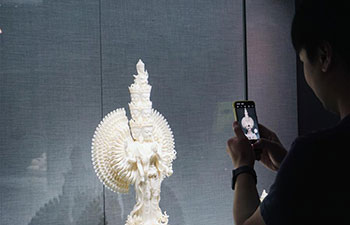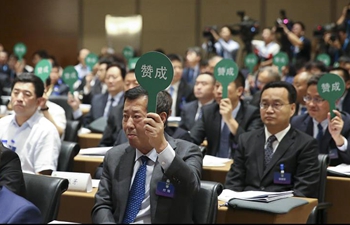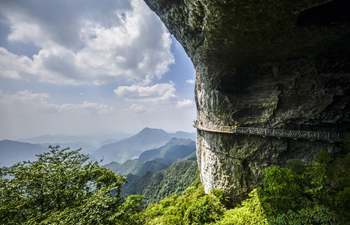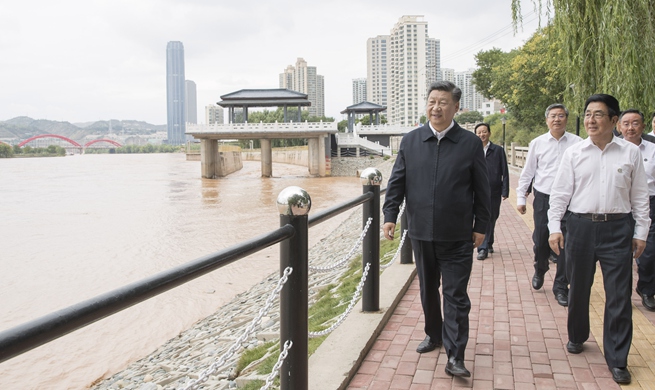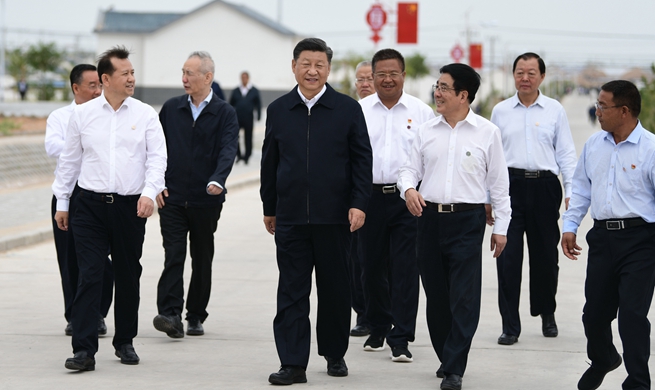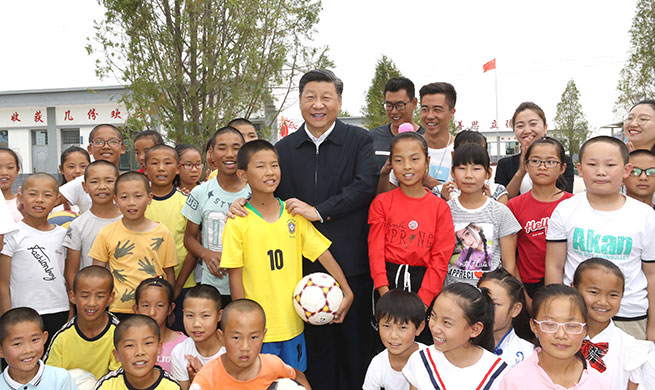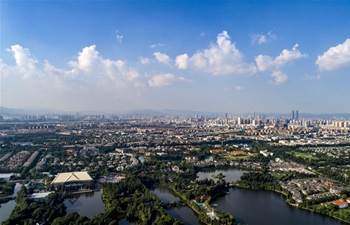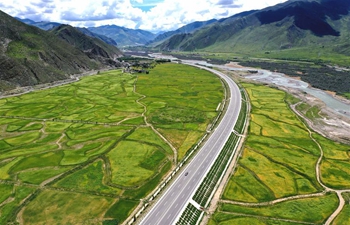by Eric J. Lyman
ROME, Aug. 22 (Xinhua) -- Italy's hardline anti-migrant policies may start to weaken in the wake of the collapse of the country's government this week, analysts said. But if that happens, it will be a long, slow process.
The most anti-migration government in modern Italian history collapsed Tuesday, creating a new phase of political uncertainty in a country very familiar with such situations. Analysts said the collapse was the result of a power grab by Deputy Prime Minister Matteo Salvini, who was the main architect of Italy's anti-migrant policies.
The changes put into place since Salvini and the rest of the government took office nearly 15 months ago include barring non-Italian migrant rescue vessels from docking in Italian ports, threatening to fine organizations that bring migrants into Italy, the sequestration of rescue ships, and slashing funding for migrant integration and aid programs.
Italy's President, Sergio Mattarella, is in the midst of consultations with political parties to replace the Giuseppe Conte government, which had been backed by the nationalist party Salvini leads, the League, and by the populist Five-Star Movement. During Mattarella's consultations, the Conte government will remain in power but only in a caretaker role.
"Every time a rescue ship came near Italian waters in the last year it was Salvini pushing to make sure it would not enter an Italian port with threats," said Antonio Rizzo, an author and campaigner for migrant rights, told Xinhua. "At the very least, Salvini cannot play that role when he is in a caretaker government."
Camillo Ripamonti, director of JRS-Italia, a refugee service group, agreed. But he also said that any real roll-back of the policies which Salvini put into force would take time.
"The 'security decree' Salvini authored can't just be undone," Ripamonti said in an interview, referring to the three-week-old law that allows captains of rescue ships to be fined up to 1 million euros (1.1 million U.S. dollars) and have their ships taken from them.
"The anti-migrant policies were more than just Salvini complaining. Laws and policies were put into place," Ripamonti said.
One of the most likely possibilities for a new government is a coalition of the Five-Star Movement together with the center-left Democratic Party, which laid out a series of five demands before negotiations could start.
Among them was a vow that a new government would loosen the harsh anti-migrant policies favored by the League. But Ripamonti said he is unwilling to put too much stock into that condition.
"I am always hopeful that things will improve, but we have to keep in mind that immigration rules were already starting to tighten even before the Conte government, when the Democratic Party was in charge," Ripamonti said.
If the Five-Star Movement and the Democratic Party fail to agree on a coalition, then new elections could be held later this year. That could put the League in the drivers' seat, and could lead to even stronger anti-migrant policies. But political analysts said that remains less likely than a Five-Star Movement-Democratic Party partnership.
If Italy does begin the slow process of undoing some of the strongest anti-migrant laws put in place by Salvini and the League, the turning point could turn out to be Tuesday's seizure of the Open Arms, a Spanish rescue ship that was at sea with nearly 100 migrants for 19 days.
A Sicilian prosecutor ordered the ship to be taken by authorities so that the last of the migrants aboard could be taken into port on the southern island of Lampedusa to receive medical care and food, all against Salvini's orders. The seizure of the Open Arms took place as the Conte government was moving toward collapse 700 kilometers to the north in Rome.

